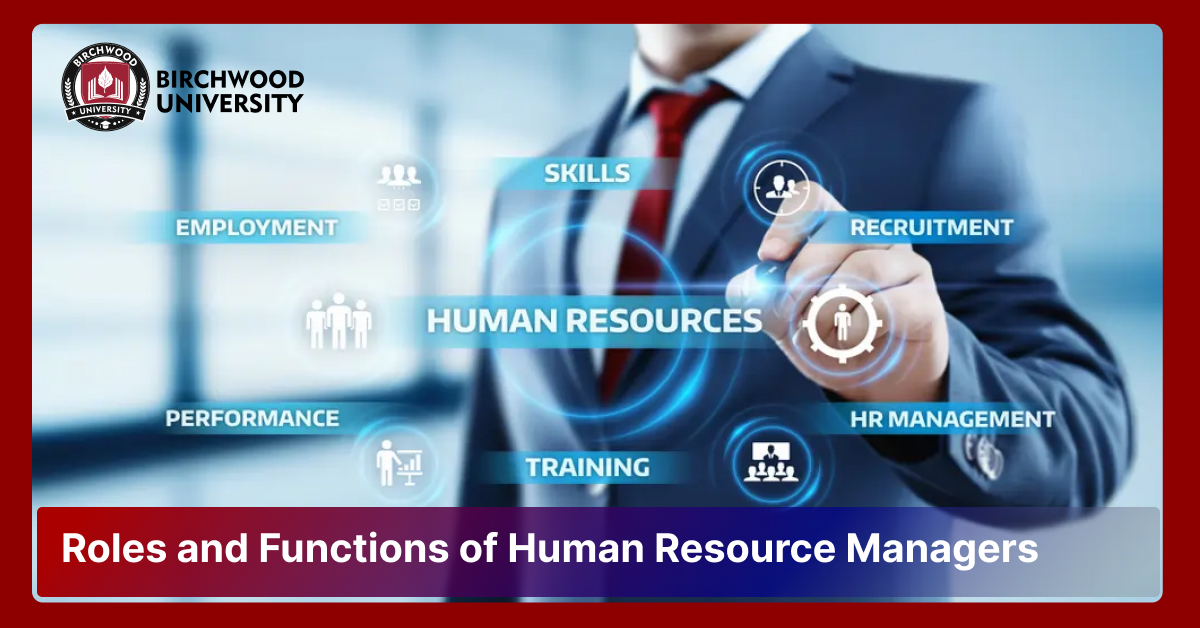The Future of Business Leadership: Why You Need an MBA
Jun 25, 2025Leadership in business management is a continuously evolving quality. The changes and challenges evolve in the business world with an increase in technology and globalisation. With the growth of interconnected industries and nations, leaders also face the challenge of leading the new generation of employees. This raises the demand for talented individuals in business management who can manage teams and projects effectively. To build business acumen and leadership quality, a Master's in Business Administration (MBA) is considered a lucrative option for aspiring leaders. An MBA is not just an academic degree but a transformation worthy of every professional requiring insights, skills, and resources essential for competition in the business of the future. This is often the most relevant way to empower tomorrow's leaders. The complexity of the business world has increased over time with the rise in globalisation, economic shifts, and policy influences. This has made it exhausting for leaders to practise effective decision-making in environments characterised by rapid changes, such as unpredictable market conditions. A Master of Business Administration course usually lays the most comprehensive foundation in critical areas such as finance, marketing, strategy, and operations. This is because these provide the mental tools that help the MBA graduates to analyse and respond effectively to various kinds of complex real-world dilemmas. It provides a solid foundation of business skills and helps boost confidence through various projects, discussions and forums. Beyond this, the teaching of all technical skills also develops confidence in decision-making under stressful situations with a mindset that is adaptive and often resilient. According to the Corporate Recruiters Survey (2024), 92% of recruiters value MBA graduates for strategic thinking, leadership, and data-driven decision-making. Innovation is the lifeblood of the current corporate society. Organisations that do not innovate towards new offerings become obsolete, but those that build channels or new outlets for change create growth opportunities. To keep up with innovation, many MBAs now provide specialisation in tech-driven fields such as data analytics, information technology (IT), fintech, and technology management. From learning about the upcoming technological trends, such as artificial intelligence and blockchain, to knowing how to apply sustainable business practices, MBA graduates are prepared for the role of innovation leader in their organisations. In fact, according to AACSB (2024), 78% of MBA programmes now include AI, data analytics, or sustainability in curricula to meet evolving leadership needs. Today's leaders in business navigate through a global marketplace. They need to manage cross-border teams in addition to having an understanding of many diverse markets and being culturally sensitive. MBA programmes effectively bring together students from around the globe, fostering a rich, interactive, and creative learning environment that explores global business dynamics. An MBA opens many top roles in national and international markets, especially in finance and management. Many C-suite executives in banking or management consulting hold MBAs, as it’s often a prerequisite for such roles. Leadership is more than just technical skills; it is about initiating people's ambitions and fuelling their spirits. Modern MBA programmes highlight the role of emotional intelligence, or EQ, which promotes effective teamwork and leadership. Such courses touch on aspects of communication, negotiation, and conflict resolution to make students self-aware and empathetic. MBA programmes are now integrating ESG (Environmental, Social, Governance) principles into their curriculum. These principles align with the growing demand for socially responsible leadership. Many programmes also include leadership labs, team-based projects, or other hands-on activities that allow learners to practise leading various groups in a supervised, supportive setting. An MBA provides special networking opportunities, which are surely one of the benefits of being an MBA graduate. The programmes, which bring together ambitious people from various areas, provide an ideal platform for developing lifelong connections. Indeed, alumni networks also provide access to mentors, job opportunities, and collaborations useful in one's career journey. A survey from the Graduate Management Admissions Council (GMAC) found that 89% of MBA graduates leveraged their network for career advancement. In a world where relationships often dictate opportunities, the connections forged during an MBA can be invaluable for future opportunities. Engaging in lifelong learning becomes a quintessential necessity for thriving amidst the ever-shifting turbulence of the present landscape of business. An MBA does not restrict one's academic journey to a particular point in time; rather, it lays the groundwork for continuous learning. Various programs give opportunities to engage in workshops, get access to resources, and even organize events for their alumni to update the graduates on the new trends and developments in the industry. Adding this kind of continual exhortation can keep an MBA grad up to date with the changing dynamics in the field. A future business leader will need more than technical skills and experience; a blend of strategic insight, emotional intelligence, and someone with a global perspective will be needed. An MBA provides professional education that can help people overcome this challenging new world. Probably putting it money-wise, however, it is not just about pursuing degrees; indeed, you prepare to lead in the changing world of business by equipping yourself through your skill, through the networks, and with the right mindset. Hence, "Why get an MBA?" would be "Can you afford not to?" Job security and high salaries are among the primary reasons for the popularity of MBA degrees. The average income for an MBA graduate is much higher than that of an employee with a regular master's. According to the QS Jobs & Salary Report, the average annual salary of an MBA graduate in the US is 102,100 USD/year, in Canada 99,800 USD/year, and in Australia 98,400 USD/year. Another report from GMAC highlights that 84% of global companies plan to hire MBA graduates in 2025, particularly in Asia and Europe. An MBA offers career choices like being a business operations manager, management analyst, market research analyst, top executive, HR manager, project head, etc. An MBA often guides students to become successful entrepreneurs. They acquire skills in managing diverse projects, leading teams from various backgrounds, and adhering to regional policies. It provides them with knowledge regarding starting and growing a business. The students learn to effectively express their ideas and vision of their dream business. According to the GMAC research team, “B-school alumni entrepreneurs most often found their companies (85%), and combined, over half establish businesses within the consulting (36%) or products/services industry (26%).” MBA courses are becoming more adaptable to fulfil the needs of both businesses and learners. Now, one can specialise in an MBA in their sector of interest. It could be on-campus, off-campus, or a route programme to broaden your global perspective. It allows individuals to apply for various high-profile positions and enhances their earning potential. An MBA further signifies the effect of lifelong learning to stay up to date with the dynamic environment and adapt with the people from different cultures, interests and capabilities. An MBA further complements the leadership skills by providing core technical strength along with the soft skills required from a management role. Indeed, you are prepared to lead in the changing world of business by equipping yourself through your skills, through the networks, and with the right mindset.Navigating Complexities with Confidence:
Harnessing the Power of Innovation:
Building Global Competence:
Developing soft skills:
Expanding Professional Network:
Staying Relevant in the Changing World:
Offers High-Paying Jobs
Build Entrepreneurship
Conclusion






